
 Flash News
Flash News
"Arsonist" arrested for repeatedly setting fires in Vlora (NAME)
Three cars collide in Tirana, one of them catches fire
He abused his minor daughter, this is a 36-year-old man in custody in Fier
Serious in Fier! Father sexually abuses his minor daughter
The phone found in prison is expected to be disassembled, Laert Haxhiu risks isolation in '41 biss'
Osmani: The tragedy in Kocani is being misused for ethnic and political polarization
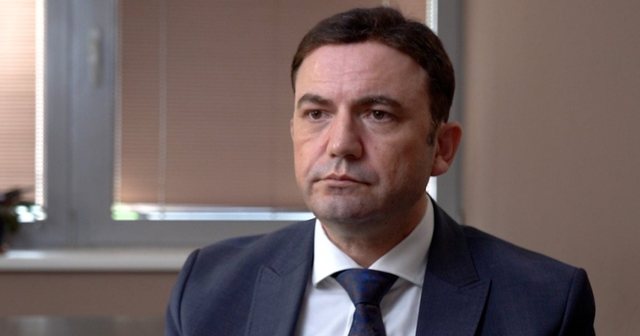
What is happening after the tragedy in Kocani is a selective ethnic, party and political polarization to protect their own at all costs, says the vice president of the Democratic Union for Integration (DUI), Bujar Osmani.
In an interview with Radio Free Europe/Radio Liberty's North Macedonia Service, he says that he has no agreement with the leader of the Alliance for Albanians, Arben Taravar, either on the announced protests or on the demand for double elections.
Radio Free Europe: Why is DUI warning of protests again? Your leader, Ali Ahmeti, declared that if former Economy Minister Kreshnik Bekteshi is accused of the Kocani tragedy, "he will take to the streets and will not return until double elections are announced"?
Bujar Osmani: I think it is wrong to link the name of Kreshnik Bekteshi as a reason for protest. He is a symbol of the selective justice that is being implemented. What is happening after the tragedy in Kocani is unprecedented in the world. It is about an ethnic, party and political polarization to protect their own.
Even when Ahmeti speaks of protests as a constitutional right of the opposition, he is not referring to Bekteshi as an individual, but to the situation in the state. The government is segregating the country, destroying the fundamental elements of state cohesion. They are: The Ohrid Agreement is being attacked and an attempt is being made to annul it, the European perspective has disappeared, and selective justice has become a cancer of distrust in a democratic society.
Radio Free Europe: President Gordana Silanovska called this pressure on the judiciary.
Bujar Osmani: The president did not react when the prime minister warned of protests against the prosecution and judiciary, when he threatened every day with the dismissal of judges and prosecutors, when he behaved like a prosecutor of the court and told Albanians that he would drag them down.
It has not fulfilled its constitutional role as a mediator between political and ethnic positions, but has become a spokesperson for monoethnic dominance, selective justice, and a single party. This function no longer represents Albanians, and mechanisms must be created so that at least the president is acceptable to all.
Radio Free Europe: Why didn't DUI protest when Artan Grubi was suspected?
Bujar Osmani: DUI is a serious party with great support. Every decision of ours has consequences and we measure them. There are differences between different cases, but again: Ahmeti mentioned Bektesh as a symbol of selective justice, not as a name that would cause protests.
Radio Free Europe: DUI had an agreement with Prime Minister Hristijan Mickoski on the reorganization of the government in the Assembly. Is there a new agreement on double or early elections?
Bujar Osmani: It is clear that this government is monoethnic and without legitimacy among Albanians. Early elections are necessary so that this situation never normalizes. This is an anomaly, an abnormal state that cannot be sustainable – it must be stopped, so that we enter that golden period where after 20 years, for the first time we will have 4 years without any elections. I have calculated: during the last 20 years we have had 14 election cycles, which means that every 17 months we have had elections. In our country, an electoral process paralyzes the country for 6 months before and 6 months after.
Radio Free Europe: What a golden period for European integration, when everything is at a standstill – the European Union does not give guarantees that Bulgaria will not continue with conditions, the current government has no intention of amending the Constitution according to the conditions set. Do you think you made a mistake by accepting these conditions even though you knew that you did not have a consensus in the Parliament?
Bujar Osmani: First, the issue of guarantees has been wrongly placed. Yes, guarantees are needed, but we should not create another problem like the one of the name. Guarantees should not be required from the European Union. The EU is a collective body where states have the right of veto, including Bulgaria. Guarantees should be required individually from member states, from Germany, France, from important EU states, which should guarantee us that they will not allow Bulgaria to misuse the framework tomorrow in the negotiation process. So, yes to guarantees, but not in the way that an abstract term is abused that will only create an insoluble problem.
Secondly, should the negotiating framework be accepted? Yes, it would be a historic mistake if we were to miss the opportunity for the first time in history to have the Macedonian language written into EU documents without any additions.
We went through the Good Neighborhood Agreement and in the negotiating framework there is no “according to the Constitution”. Ninety percent of the negotiations with Bulgaria were for that formulation. To add “according to the Constitution” or an explanatory asterisk to the definition of the language, we solved this 100 percent at our own expense.
Radio Free Europe/Radio Liberty: Hypothetically, if there are elections, and you win and enter government with VMRO-DPMNE, will you implement this?
Bujar Osmani: Even before the previous elections, Albanian political parties signed an agreement that they would not enter the government with a party that does not accept to complete the European process. Because, without a European future, this country has no future. This is the key sentence. And, everyone signed it: VALEN, Ahmeti, Taravari, Izet Mexhiti and others. But, they withdrew from that agreement, while we continue to respect it since last year.
There is no and cannot be prosperity without a European future for the state. And we do not say this as a threat, but as a concern for the future of citizens who are receiving Bulgarian passports every day, tomorrow they may also receive Albanian passports and we will be the only paradox in the world – a non-EU country, but with citizens who are all EU citizens through neighboring states.
Radio Free Europe: Let's get back to the elections. Has there been a decision in DUI whether you will participate in the local elections?
Bujar Osmani: Ahmeti's statement regarding the local elections was an explanation of the situation in the event that hypothetically the Law on Languages would be affected by the Constitutional Court. Then, there is no logic for politics to function in the state anymore, because that is where the Ohrid Agreement ends. The first two pillars have already collapsed.
The issue of legitimacy – you see the engineer in the Albanian political bloc, the prime minister decides who represents the Albanians, there is no logic why we should participate in the elections when someone else decides for us. Secondly, the "Balancuesi" and Badenter, which are the second pillar, and thirdly – the language. If the language is affected, there is no longer a framework agreement.
Radio Free Europe: But the decision has been postponed until after the local elections.
Bujar Osmani: Even though the report has been prepared, the ground is being prepared for this, and this makes the upcoming elections more of a referendum on language than an election for mayors.
Radio Free Europe: What does this mean? Will DUI participate in the elections?
Bujar Osmani: DUI, of course, will participate in the joint elections – the early parliamentary elections and the local elections.
Radio Free Europe: What if they are only local?
Bujar Osmani: Of course we will participate and win those elections.
Radio Free Europe: Is there a cooperation agreement with Arben Taravari and the Alliance for Albanians for local elections?
Bujar Osmani: There is no such agreement, we are following the developments in WLEN. I think Taravar's decision to raise his voice against this humiliation is a truly courageous decision. We are waiting for those dynamics there to end, then we will see what the positioning will be for the next elections.
Radio Free Europe: Are you talking with SDSM about any cooperation in the local elections?
Bujar Osmani: There is no formal communication between the two parties on this issue.
Radio Free Europe: Why is DUI playing the ethnic card again before these elections? Why isn't it focusing on real problems, like the economy, the fight against corruption, and the emigration of young people?
Bujar Osmani: I think the question is wrongly posed. Why doesn't the government focus on economic issues, on normal issues, but should it remove the "Balancuesi"? Why are monoethnic hirings being made? Look at all the recent job openings in state institutions – due to the removal of the "Balancuesi", there are no Albanian employees. Why is the Albanian language disappearing from state institutions? Why are they trying at all costs to close the Language Inspectorate? That is the question.
DUI is reacting to the attempt to attack the foundation of the unity of the state – the Ohrid Agreement, the historic agreement between Macedonians and Albanians on how this country should be governed and lived. This is the issue you should raise with the Government.
Radio Free Europe: The tragedy in Kocani also showed what kind of system you yourself have built, having been in power for 20 years.
Bujar Osmani: The way the tragedy in Koçan is being handled is actually the paradigm of what I am saying now. The court must show. So far it has not been shown what kind of system we had.
What we saw is that the Police did not intervene in time, that the Police knew that a year ago the hall did not have a license, that on the day that organization with 600 people took place, that it was advertised, throughout Kocani it was known that it would happen, and the Police knew that there was no license, that there were no conditions – but this is not being addressed. The Ministers of Economy are being investigated for 15 years.
Radio Free Europe: Yes, but the licenses are granted for 15 years.
Bujar Osmani: Here you see a clear attempt. Who are the culprits? We found some Albanians. And now they want to tell the people in Kocani that “Albanians killed you”. Do you know how dangerous this idea is? But I am very happy that this attempt to ethnicize the issue did not take root.
I never heard from the mothers, from the parents of the deceased in Kocani, to mention this. They correctly identified and said who should have protected them that night. The people in Kocani, the families, passed the most important test – they did not fall prey to this propaganda and in fact pointed the finger where they expected someone to protect them./ REL
Latest news


"Arsonist" arrested for repeatedly setting fires in Vlora (NAME)
2025-07-01 16:29:45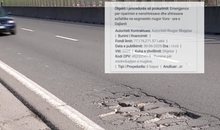
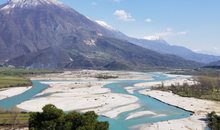
The ecological integrity of the Vjosa River risks remaining on paper
2025-07-01 16:09:40
Heat Headache/ Causes, Symptoms and Measures You Should Take
2025-07-01 16:01:13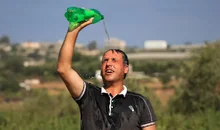
UN: The world must learn to live with heat waves
2025-07-01 15:54:50

Three cars collide in Tirana, one of them catches fire
2025-07-01 15:38:16
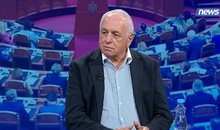
Shehu: Whoever doesn't want Berisha, doesn't want the opposition 'war'!
2025-07-01 15:19:20
Berisha requests the OSCE Assembly: Help my nation vote freely
2025-07-01 15:11:46
Be careful with medications: Some of them can harm your sex life
2025-07-01 15:00:32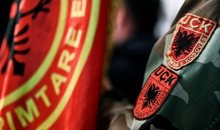
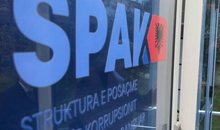
'Golden Bullet'/ Lawyers leave the courtroom, Altin Ndoc's trial postponed again
2025-07-01 14:44:52
EU changes leadership, Kosovo in a number of places
2025-07-01 14:40:01
Should we drink a lot of water? Experts are surprised: You risk hyponatremia
2025-07-01 14:30:20

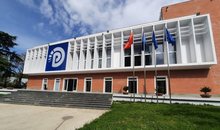

Lëpusha beyond Rama's postcards: A village that is being silently abandoned
2025-07-01 13:41:56
Scorching temperatures in France close the Eiffel Tower
2025-07-01 13:29:35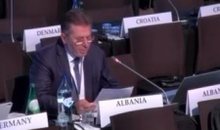
Media: China, Iran and North Korea, a threat to European security
2025-07-01 13:20:12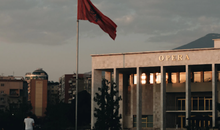
Albania drops in global index: Less calm, more insecure
2025-07-01 13:09:35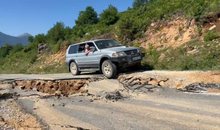
Road collapses, 5 villages in Martanesh risk being isolated
2025-07-01 13:03:04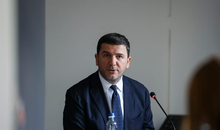
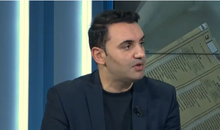
Këlliçi: Opposition action to be decided in September
2025-07-01 12:48:49
Four tips for coping with the heat wave
2025-07-01 12:38:53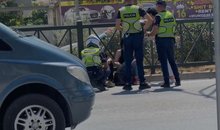
Car hits pedestrian on Transbalkan road
2025-07-01 12:27:09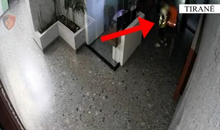
Authors of 9 robberies, Erjon Sopoti and Abdullah Zyberi arrested
2025-07-01 12:15:56
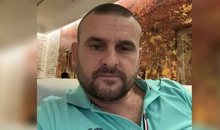
He abused his minor daughter, this is a 36-year-old man in custody in Fier
2025-07-01 11:50:34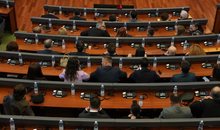
The constitution of the Kosovo Assembly fails for the 40th time
2025-07-01 11:40:08



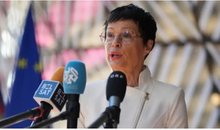
EU confirms support for the Western Balkans
2025-07-01 10:50:45
Serious in Fier! Father sexually abuses his minor daughter
2025-07-01 10:32:33
One year since the passing of the colossus of Albanian literature, Ismail Kadare
2025-07-01 10:25:26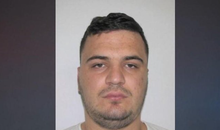

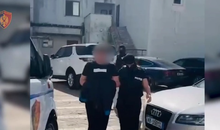
They supplied the 'spaçators' with drugs, two young men are arrested in Tirana
2025-07-01 09:54:09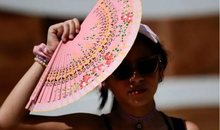
Europe is "scorching", how dangerous are high temperatures?
2025-07-01 09:48:56


Nigel Farage in Albania: but why?
2025-07-01 09:13:12
Xama: The "Partizani" dossier is quite weak and without facts!
2025-07-01 09:04:47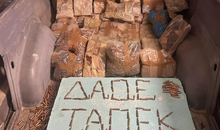

Foreign exchange, the rate at which foreign currencies are sold and bought
2025-07-01 08:35:39
Fabricators again warn of factory closures and job cuts
2025-07-01 08:21:30
Horoscope, what do the stars have in store for you today?
2025-07-01 08:08:59
Scorching hot, temperatures reaching 40°C
2025-07-01 07:57:12
Morning Post/ In 2 lines: What mattered yesterday in Albania
2025-07-01 07:42:59
Recount after May 11, Braho: I had no expectations for massive vote trafficking
2025-06-30 22:54:18

Second hearing on the protected areas law, Zhupa: Unconstitutional and dangerous
2025-06-30 22:18:46



Israel-Iran conflict, Bushati: Albanians should be concerned
2025-06-30 21:32:42

Fuga: Journalism in Albania today in severe crisis
2025-06-30 21:07:11
"There is no room for panic"/ Moore: Serbia does not dare to attack Kosovo!
2025-06-30 20:49:53

Temperatures above 40 degrees, France closes nuclear plants and schools
2025-06-30 20:28:42
Lavrov: NATO is risking self-destruction with new military budget
2025-06-30 20:13:54
Turkey against the "Bektashi state" in Albania: Give up this idea!
2025-06-30 20:03:24

Accused of sexual abuse, producer Diddy awaits court decision
2025-06-30 19:40:44



Kurti and Vučić "face off" tomorrow in Skopje
2025-06-30 18:44:12
Tourism: new season, old problems
2025-06-30 18:27:23


Construction worker dies after falling from scaffolding in Berat
2025-06-30 17:51:44




Almost free housing: East Germany against depopulation
2025-06-30 16:43:06

Hamas says nearly 60 people killed in Gaza as Trump calls for ceasefire
2025-06-30 16:14:15
Drownings on beaches/ Expert Softa: Negligence and incompetence by institutions!
2025-06-30 16:00:03


European ports are overloaded due to Trump tariffs
2025-06-30 15:30:44
The prosecution sends two Korça Municipality officials to trial
2025-06-30 15:19:54

Lezha/ Police impose 3165 administrative measures, handcuff 19 drivers
2025-06-30 14:55:04
Young people leave Albania in search of a more sustainable future
2025-06-30 14:47:52
Record-breaking summer, health threats and preventive measures
2025-06-30 14:36:19


Constitution of the Parliament, Osmani invites political leaders to a meeting
2025-06-30 14:07:54

Heat wave 'invades' Europe, Spain records temperatures up to 46 degrees Celsius
2025-06-30 13:42:02
Accident in Vlora, car hits 2 tourists
2025-06-30 13:32:16
